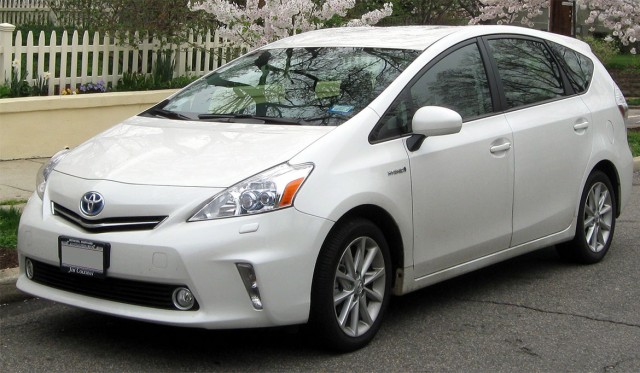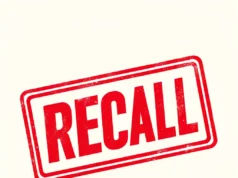
Toyota Motor Corp. extended its safety recall saga by announcing a “service campaign” to fix a problem with the control mechanism in the exhaust system of its famous Prius hybrid cars.
The Japanese automaker would recall 8,000 units of Prius Alpha hatchback wagons in Japan and about 20,000 units of the same vehicle in North America, where it is marketed as Prius V. The vehicles belong to the model year 2011–12.
The automaker noticed that actuators, control mechanisms in the exhaust-heat-recovery systems, have weakened and could cause engine coolants to leak. The leakage could make the hybrid system’s warning light to turn on, leading the car to run in safe mode.
Toyota occupied the No.1 spot in hybrid offerings after introducing Prius in 1997. Last month, Prius’ sales leapt 54.3% to 28,711 units.
The company introduced Prius Alpha in May last year. It has been derived from the third generation Prius model and is equipped with nickel-metal hydride (NiMH) batteries like its predecessor.
The past string of recalls has tarnished Toyota’s reputation, resulting in declining sales and lower vehicle resale value. Since November 2009, Toyota has recalled more than 15 million vehicles globally in more than 20 recalls, surpassing all other automakers.
In March, Toyota announced recall of nearly 700,000 vehicles due to two separate problems. The major part of the recall comprised 495,000 units of Tacoma trucks from the model years 2005–2009. It is related to a defective steering wheel mechanism that could rub against a cable assembly and damage the electrical connection. The electrical glitch could disable the airbag mechanism, thereby increasing the risk of injury in a crash.
The second set of recall involved 70,500 units of Camry from the 2009 model year and 116,000 units of Venza from the 2009–2011 model year. It is driven by silicon grease that may have gotten inside the stop-lamp switch at the factory due to improper installation. The defect could lead to electrical resistance in the vehicles.
Last week, Toyota also announced recall of 70,000 units of Vista, Corona, and Nadia models due to a problem with their engine bolts that could break while the vehicles are in motion. The automaker also plans to recall 834 units of Hiace and Regius Ace wheelchair-accessible vehicles in Japan in order to meet a safety regulation.
Toyota, a Zacks #2 Rank (“Buy”) company, posted an 8.3% fall in profit to ¥101.7 billion ($2.6 billion) in the third quarter of fiscal year ended December 31, 2011 from ¥110.9 billion in the same quarter of prior fiscal year. On per share basis, profits were ¥25.81 (67 cents) versus ¥29.86 in the third quarter of fiscal 2011, exceeding the Zacks Consensus Estimate of 27 cents. However, revenues in the quarter grew 4% to ¥4.9 trillion ($126.3 billion).
The continuous decline in profits was attributable to disruptions in supply of parts caused by the earthquake and tsunami in Japan on March 11, 2011 as well as due to floods in Thailand in the second half of 2011, and due to continued appreciation of yen against dollar.
Meanwhile, Toyota’s compatriot Honda Motor Co. reported a 41% decline in profits to ¥47.6 billion ($613 million) or ¥26.45 (34 cents) per share in the third quarter of fiscal 2012 from ¥81.1 billion or ¥45.01 per share in the same quarter of prior fiscal year. Revenues in the quarter dipped 8% to ¥1.9 trillion ($25.0 billion), driven by lower revenues due to the same factors affecting Toyota.
Recently, Toyota raised its 2012 sales forecast for the U.S. due to improving consumer confidence, rising gasoline prices and strong pent-up demand on the back of aging vehicles on road (average age of a vehicle on U.S. roads is 10.8 years).
The Japanese automaker expects to boost sales by 15% to 1.89 million vehicles in the U.S. during the year. The company believes rising gasoline prices would raise the demand for its fuel-efficient lineups.







